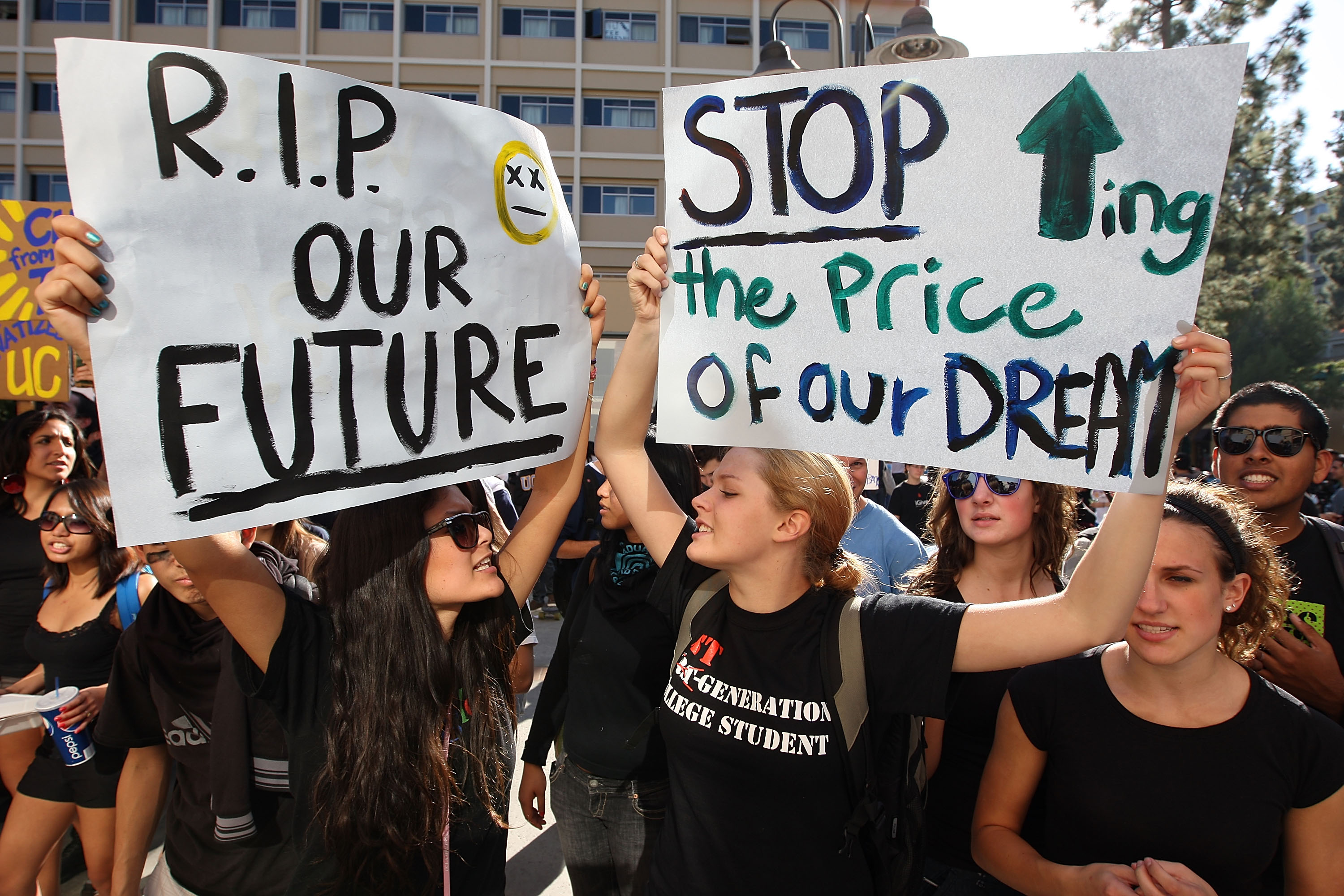In September, the executive council of the UK’s National Union of Students voted to recommend a “yes” vote in a ballot for a student strike. A student strike, which would be the first of its kind in the UK since 1971, is still to be confirmed. The decision-making bodies of 30 students’ unions must call for a ballot on strike action and students themselves must vote “yes” if the ballot is agreed. Still, students in the UK, and in particular student activists working in the National Campaign Against Fees and Cuts, have taken an important step towards strike action. Specifically, they are opposing cuts to maintenance grants and also drawbacks on student supports in general. In Ireland, the student contribution charge has rocketed to €3,000, maintenance grants have been cut and the government appears set to adopt a loan system similar to the UK. We too must mobilise as students: be it to protest, petition or even to strike.
Thousands marched through London on November 4th, demanding the removal of tuition fees and the reintroduction of a means-tested maintenance grant.
The crisis for students in the UK is, nonetheless, in many ways more acute than it is in Ireland. Straightforward tuition fees are now charged in every nation within the United Kingdom with the exception of Scotland, though the amount universities can charge in England, Wales and Northern Ireland differs. Fees are highest in England, where universities are permitted to charge up to £9,000 a year for tuition. The 2015 UK Graduate Careers Survey found that those graduating in 2015 will leave university with an average debt of £30,000, and this is due to worsen. This year, The UK government announced its intention to transform maintenance grants into maintenance loans, thereby increasing the debt of the poorest students, a move that unsurprisingly provoked outrage among students. Thousands marched through London on November 4th, demanding the removal of tuition fees and the reintroduction of a means-tested maintenance grant.
The campaign hopes to harness student indignation demonstrated by the thousands who attended the march to create “a mass movement, rooted in students and workers across the country”. The numbers involved in the campaign to date show that they’re succeeding. The surge in student activism in the UK makes our own inaction all the more frustrating by comparison. This year, the Union of Students in Ireland (USI) cancelled their annual protest in favour of a national day of voter registration. Their protest in 2014 was 6,000 strong – indeed, Trinity College Dublin Students’ Union (TCDSU) sent the largest delegation – and sent a clear message to all political parties. Students would not tolerate an additional increase to the student contribution charge or further attacks to third-level education and student supports in the then-upcoming budget.
Student protests in Ireland, which at their height in 2010 attracted somewhere between 15,000 and 40,000 attendees, have apparently been abandoned in favour of voter registration, which has neither the visibility nor the effectiveness of a march. It’s difficult to understand the thinking of proponents of voter registration days, given that both parties presently in government promised during the last election not to increase the student contribution charge and flagrantly violated their promises when it was politically necessary. Students should not expect political parties to take it upon themselves to improve the financial burden that is currently placed on students, especially after a budget of growth in which students were ignored. Clearly, political will is not in our favour and we need to capture the attention of Leinster House through direct action.
The only response to continued austerity which has visible, practical and positive results for students is to take matters into our own hands.
The only response to continued austerity which has visible, practical and positive results for students is to take matters into our own hands. TCDSU almost surrendered their initiative in the fight against student loans by failing to endorse the first motion at council to oppose any form of loan system. Shockingly, we were subject to outright defeatism by members speaking against the motion, who appeared to suggest that the battle over student loans had already been lost. Following the leaked recommendation from the government-commissioned report about the introduction of a student loan system, students thankfully reversed this capitulation and voted to oppose student loans, averting a worrying move.
If we look abroad, though, we can see that student resistance can make a difference and we need not meekly accept further austerity. The last strike in the UK in 1971 defeated the proposals of the then-education secretary Margaret Thatcher. Presently, students activists in the UK are convinced with good reason that the policies of another Conservative government forty years on can be defeated if students are engaged and on the streets. Indeed, we could do with a detailed look even further afield to Quebec in 2012 where a massive student strike defeated a proposal to increase tuition fees. In Ireland, we would do well not to rule out the possibility of strike action, particularly as austerity measures aimed at students continue in spite of a proclaimed economic recovery.







